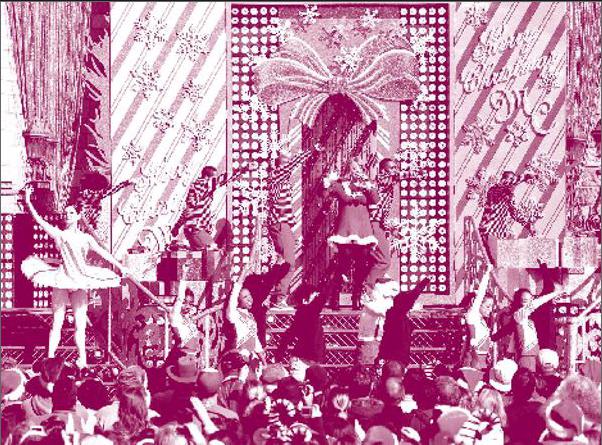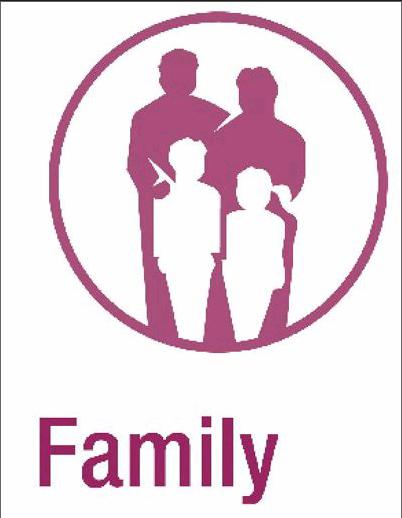跟踪导练(二)1
2015-03-16



阅读地带
A
TOURNAMENT OF ROSES
— 5 Days Los Angeles
Day 1 Los Angeles. (Sun., Dec. 30)
Welcome to Los Angeles! This evening mix with your traveling companions at the welcome reception.
Day 2 Los Angeles. (Mon., Dec. 31)
Head to Pasadena for the always colorful ROSE BOWL FAMILY FESTIVAL and watch the floats (彩车) decorated with tens of thousands of flowers. This afternoon, you can take the included visit to the GETTY MUSEUM. This evening, join your traveling companions at a special New Years Eve DINNER AND DANCE GALA (盛会), complete with hats, party favors, live music, and, of course, champagne! Youll toast the New Year a little early tonight to allow for an early morning departure (离开) to the Roses Parade.
Day 3 Los Angeles. Tournament of Roses Parade. (Tue., Jan. 1)
Happy New Year! Get ready for one of the worlds most popular parades, and youll see it live! Globus has booked the GRANDSTAND SEATS at the beginning of the parade route for a good view. See the wonderful floral floats, marching bands from around the world, and the celebrities.
Day 4 Los Angeles. (Wed., Jan. 2 )
This morning view the individual floats in the POST PARADE VIEWING AREA. For many this is the highlight of the entire event. Be sure to bring your camera and plenty of film! Another special treat tonight—a special GLOBUS FAREWELL CELEBRATION DINNER.
Day 5 Los Angeles. (Thu., Jan. 3)
The tour ends today, with tour guests departing on individual schedules.
1. What activity can visitors enjoy on Dec. 31?
A. Tournament of Roses Parade.
B. A farewell celebration dinner.
C. A dinner and dance gala.
D. Post Parade.
2. What does the underlined word “Globus” in Paragraph 3 refer to?
A. The travel agency. B. The local government.
C. Los Angeles. D. The Roses Parade.
3. According to the passage, you should bring your camera on ___ .
A. Day 2 B. Day 3
C. Day 4 D. Day 5
4. Where can you most probably read the passage?
A. In a textbook. B. In a travel guide.
C. In a novel. D. In a history magazine.
B
Once Chinese couples have married, they no longer choose to live with parents at home. Some 60 to 70 percent of couples no longer live with parents, and in a research for this series, no young Chinese said they would live at home if they could afford not to. “No way,” says Jun Yaolin, who got married two years ago. “We will fight.” One counter-trend (反趋势) is to live a “bowl of soup” distance away; that is, move out but live within a few blocks. This clearly supports another new trend—full-time care of children by grandparents.
The success of the one-child policy, combined with the ability of couples to buy their own houses, is creating its own “empty nest” condition. This means that older people are starting to experience an often terrible new loneliness. China is still a country which respects elders. Yet a public service advertisement on Chinese TV shows an elderly lady cooking all day. As she sets the table for dinner, the phone calls come one by one, “I cant make it. Can I come tomorrow?” The advertisement ends with a lonely figure sitting at a table of food and the words, “Dont forget your parents.”
“The traditional family has changed,” says Dong Zhiying, a scholar at the Chinese Academy of Social Sciences in Beijing. “It used to be considered that kids would take care of parents. Now it no longer is. In the past, older people in the family were dominant (占支配地位的). Young people had no choice but to respect them. Parents power was based on money and social influence; if you dont respect them, you lose favor.”
“Today, the intellectual and market development in China has grown quickly, and changed the family. Young people arent respecting elders. They can rely on their own ability—go to university, be independent, and make their own choices.”
The family revolution (变革) is affecting all ages: As more couples choose to live away from parents, the elderly are left alone.
5. We can infer from Paragraph 1 that young Chinese people ___ .
A. would like to have their own places to live in
B. dont want to live with their parents for free
C. can take part-time care of the children if they live with the old
D. dont want to live far away because their parents need care
6. What does the underlined phrase “empty nest” in Paragraph 2 suggest?
A. There are houses no one wants to live in.
B. The house is empty after the only child gets married.
C. The young live with their parents with their own houses empty.
D. The old are experiencing loneliness.
7. Which of the following statements is TRUE according to Paragraph 3?
A. Kids would respect their elders to get support in the past.
B. People used to think that kids shouldnt look after their parents.
C. Older people in the family are dominant in China.
D. No young Chinese couples want to live with their parents.
8. Why dont young people respect their elders according to Paragraph 4?
A. Society has developed so fast that it has changed the family.
B. The elders dont have any money or power in society.
C. The elders are too weak to control the young.
D. Young people can live on their own.
9. What does the passage mainly tell us?
A. Chinese young people respect their elders much more than ever before.
B. The one-child policy has achieved a great success in China.
C. The Chinese family has changed a lot in recent years.
D. A revolution in families is taking place around the world.
从下列方框里10个单词中选择8个适当单词的正确形式填入下列各句中,使其句意完整。每个单词只使用一次。
application certain favour form impolite
obligation prize refund reply tidy
1. Every one of us shall have the ____ of protecting our natural environment.
2. The medalists are presented with a golden medal together with a ____ of 15,000 Canadian dollars.
3. Do you think that this mixed group of young basketball players could be ____ into a team?
4. Jones joined the party and ruined the pleasure of everyone by his ____ behaviour.
5. She washed her face, ____ her hair and went down to tea.
6. They didnt receive any special ____ from the state.
7. ____ of those present were unwilling to discuss the matter further.
8. Please phone your ____ to me—a letter would take too long to arrive.
下列各句有1个错误。
1. As we all know, Canada is one of the largest immigrations countries in the world. ____
2. It is polite to turn your back on someone who is just speaking to you. ____
3. When he heard the knock at the door, he hurriedly got up to reply it. ____
4. In common to many young people, he prefers pop music to classical music. ____
1. 我想请你帮个忙。请把自行车借给我好吗?
2. 苏珊觉得没有义务告诉比尔实情,因为他们已经不是好朋友了。
3. 我已经有那本书了,你没必要再给我带一本来的。
4. 你不必买礼物给珍妮,但如果你买了她会很高兴的。
1. — I came here by taxi and the driver charged me 50 yuan.
— Really? You ___ have come by bus.
A. need B. mustnt
C. should D. may not
2. You can get cheaper fares on ___ days of the year.
A. usual B. sure
C. certain D. proper
3. The weather turned out to be fine yesterday. I ___ the trouble to carry my umbrella with me.
A. should have taken B. could have taken
C. mustnt have taken D. neednt have taken
4. The teacher didnt ___ to my questions which she thought were not too difficult for me to think over.
A. reply B. answer
C. say D. tell
5. When we got to the cinema, the film hadnt started yet, so we ___ .
A. neednt hurry B. neednt to hurry
C. neednt have hurried D. didnt need hurry
6. When he was at school, he won the first ___ for good behavior.
A. price B. present
C. prize D. praise
7. Why didnt you ___ your bedroom before you attended the party?
A. tidy up B. tidy out
C. tidy off D. tidy away
8. I took the radio back, and the assistant in the department store ___ my money.
A. carried B. refunded
C. paid D. took
The biggest turning point in my life so far was the day I left home to go to college. At the age of eighteen, I had 1 been away from my parents for more than two weeks so I viewed my new independence with a mixture of 2 and excitement.
When the day to pack my things came, I began to 3 if I had made the right decision. I tried to 4 myself with the thought that I was moving on to a 5 life but there was still a doubt in the back of my mind. Deep in my thoughts was that I was 6 all my friends behind, so it was with 7 that I made my way to the train station.
By the time I 8 at my destination, I believed I had made a terrible mistake. I was sad, 9 and more terrified than I had ever been in my life. 10 , once I had been shown to my room and had 11 some of the other students, I began to 12 a lot more positive. Within a few days, I was more 13 in my new surroundings and all my doubts and fears 14 . There were so many new things to 15 and people to meet that I was too busy to be upset.
One of the main reasons why this was such an important change for me was that my life was taking a completely new
16 . Though there were some problems with 17 myself such as washing clothes, buying food, etc., I soon realized that I could 18 it well.
People have to move on and there are always 19 in our lives. Perhaps one of the lessons we should learn is how to 20 those that are new to us into our best advantages.
1. A. always B. often C. sometimes D. never
2. A. anger B. worry C. joy D. difficulty
3. A. wonder B. judge C. care D. check
4. A. persuade B. treat C. compare D. advice
5. A. richer B. better C. healthier D. busier
6. A. forgetting B. putting C. leaving D. taking
7. A. happiness B. surprise C. sadness D. confidence
8. A. arrived B. reached C. stayed D. looked
9. A. crazy B. lonely C. hungry D. tired
10. A. Therefore B. However C. Though D. Instead
11. A. asked B. visited C. invited D. met
12. A. feel B. keep C. prove D. seem
13. A. realistic B. useful C. comfortable D. grateful
14. A. rose B. hid C. developed D. disappeared
15. A. experience B. collect C. introduce D. imagine
16. A. position B. situation C. direction D. definition
17. A. looking after B. believing in
C. showing off D. talking about
18. A. know B. manage C. prepare D. arrange
19. A. choices B. hopes C. dreams D. changes
20. A. lose B. save C. turn D. pay
